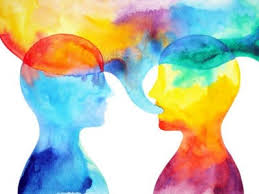Through my involvement with stroke survivors at all levels, I heard from a lady who had to move 2000 miles away to get out of an already horrid relationship. Reason being, she was under so much stress that once she had the stroke, the situation was unbearable. The distance was worth it for two reasons, I imagine: the distance put, well, distance between her and him AND she is happily situated now, 10 minutes away, near her daughter. I’m a sucker for stories with happy endings.
My online stroke support group works on giving me distance, too–to stay away from people who can’t tolerate that I’m different than when they knew me before! First, some research on why the intolerance.
Studies say it is predicted that by 2030, there will be 12 million stroke deaths and 70 million stroke survivors. It stands to reason that many stroke survivors feel unsupported. So the questions remains, can the complex needs of survivors and families and friends cope with the aftermath of stroke? Or any type of brain injury, for that matter.
It is estimated that up to one-third of survivors will have communication difficulties including aphasia, dysarthria, or apraxia of speech (language comprehension, producing speech, and/or difficulties with reading and writing). Research says stroke survivors with communication problems aforementioned may have difficulties living in a community with those that don’t have such problems, resulting in a poorer quality of life and not joining activities of daily living. Furthermore, evidence of the survivors are also more likely to suffer depression and have reduced social interactions.
The National Institutes of Health published an article about why people lose friends after a stroke and why this phenomenon occurs across the board .
Under the helm of the English study, Northcott and Hilari explored why people lose contact with their friends, and how friendship loss and change is perceived by the survivors.
Between 8 and 15 months post stroke, 29 participants were recruited, 10 having aphasia. The researchers deduced the main reasons given for losing friends were:
1. loss of shared activities
2. reduced energy levels
3. physical disability
4. aphasia
5. unhelpful responses of others
6. environmental barriers
7. changing social desires
“Those with aphasia experienced the most hurtful negative responses from others and found it more difficult to retain their friends unless they had strong supportive friendship patterns prior to the stroke,” says the study.
“The factors which helped to protect friendships included: having a shared history, friends who showed concern, who lived locally, where the friendship was not activity-based, and where the participant had a ‘friends-based’ social network prior to the stroke.”
Another study by Martinsen et al in a nursing journal examined psychosocial consequences following a stroke and the survivors’ ability to participate in and carry out the ordinary and expected roles and activities of family life.
Twenty-two stroke survivors aged 20–61 years were interviewed extensively six months to nine years after stroke onset. The struggles are summarized in two main categories: struggling to reenter the family and screaming for acceptance.
“Being provided with opportunities to narrate their experiences to interested and qualified persons outside the home context might be helpful to prevent psychosocial problems,” the study says.
“Normality includes feeling sad over the problems caused by stroke. However, a portion of the survivors experience a major depressive disorder which should be diagnosed and treated as soon as possible. The people we should focus on are the people with a major depressive disorders which includes a number of symptoms nearly every day, all day, for at least 2 weeks.”
These always include at least one or more of the following, and all the time beyond 2 weeks:
1. Feeling sad, anxious, pessimistic, and/or hopeless
2. Loss of interest in things that the person used to
enjoy
3. Feeling restless, loss of energy, and/or feeling
fatigued constantly
4. Feeling worthless and/or guilty
5. Increase or decrease in appetite or weight
6. Problems concentrating, remembering, and/or
making decisions
7. Trouble sleeping or sleeping too much
8. Headaches and/or stomach problems
9. Sexual problems
10. Thoughts of death or suicide
What are the takeaway thoughts? There are two.
First, it is normal for a stroke survivor to experience most or all of these feelings or emotions. Second, family and friends should take heed and be more supportive of the survivor regardless of the healthy one’s sometimes biased, small-minded, and me-centered thinking.




